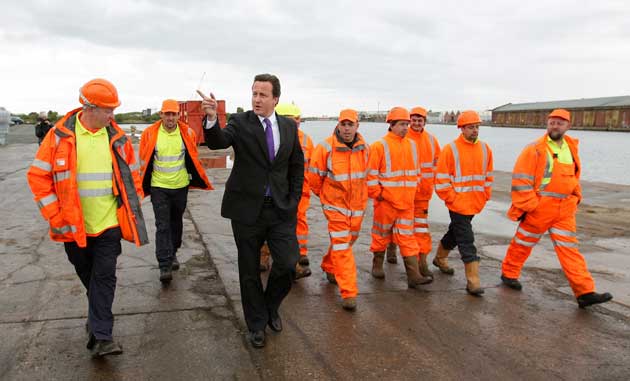Diplomats' anger at Tory plans to create right-wing EU group
Joining forces with homophobic Polish MEPs will leave Britain isolated and ridiculed, officials warn

Your support helps us to tell the story
From reproductive rights to climate change to Big Tech, The Independent is on the ground when the story is developing. Whether it's investigating the financials of Elon Musk's pro-Trump PAC or producing our latest documentary, 'The A Word', which shines a light on the American women fighting for reproductive rights, we know how important it is to parse out the facts from the messaging.
At such a critical moment in US history, we need reporters on the ground. Your donation allows us to keep sending journalists to speak to both sides of the story.
The Independent is trusted by Americans across the entire political spectrum. And unlike many other quality news outlets, we choose not to lock Americans out of our reporting and analysis with paywalls. We believe quality journalism should be available to everyone, paid for by those who can afford it.
Your support makes all the difference.David Cameron has caused dismay at the highest levels in the Foreign Office over plans for a hardline European policy under a Tory government, The Independent on Sunday has learnt.
The Conservative leader risks leaving Britain isolated and ridiculed, say diplomats, if he pushes ahead with plans to form a new Eurosceptic group in the Strasbourg parliament which would include a party that warns homosexuality will trigger the "downfall of civilisation".
Officials are also alarmed that the shadow Foreign Secretary, William Hague, has told Sir Peter Ricketts, the Foreign Office's permanent secretary, to prepare for a referendum on the Lisbon Treaty as the first act of a Tory government. Mr Cameron has not ruled out calling a referendum even if all EU countries ratify the treaty, a move that has caused particular consternation at the Foreign Office.
Mr Hague confirmed last week that the Tories would leave the European People's Party (EPP), the grouping that includes the parties of Nicolas Sarkozy and Angela Merkel, after the European elections on 4 June.
He said formal talks on an "amicable separation" had been completed and that he was confident that at least 20 MEPs representing parties from seven countries – the minimum required to qualify for funding for a new grouping – would sign up, claiming that the Conservatives had "lots of partners in the wings".
The group will include the Polish Law and Justice Party (PiS), which has banned gay rights marches for being "sexually obscene". Its co-founder Jaroslaw Kaczynski has said that homosexuality will cause the "downfall of civilisation". Another PiS MP has warned that Barack Obama's victory would mean "the end of the civilisation of the white man". Mr Hague has also held talks with a Latvian hardline nationalist party.
A senior diplomat warned that Mr Cameron must "remain engaged" in Europe and expressed dismay over the treaty and the new grouping.
And the former Europe minister Denis MacShane said: "Tory isolationism is now creating a network of unpleasant, ugly, anti-European parties grouped around Cameron and Hague, but surely they should draw the line at links with gay-bashing homophobes."
Although Tory MEPs are concerned, Mr Cameron's pledge to leave the EPP, made during his 2005 leadership campaign, won over the right wing of his party, and many believe it secured his victory over David Davis. As many as 40 MPs, one in five of all Tory MPs, backed Mr Cameron because of the promise. Although a revolt, if he reneged on the pledge, is unlikely with the Tories so close to power, the U-turn would cause an unnecessary risk, say his aides.
A Conservative spokesman said: "When we form our new group, we will continue to be energetically engaged with our European partners on issues such as global competitiveness, the environment and on global poverty. As for the Lisbon Treaty, the Government promised to give people a say on the EU constitution and we will continue to pressure them to change their mind again and keep that promise. It is a matter of faith and trust."
Join our commenting forum
Join thought-provoking conversations, follow other Independent readers and see their replies
Comments